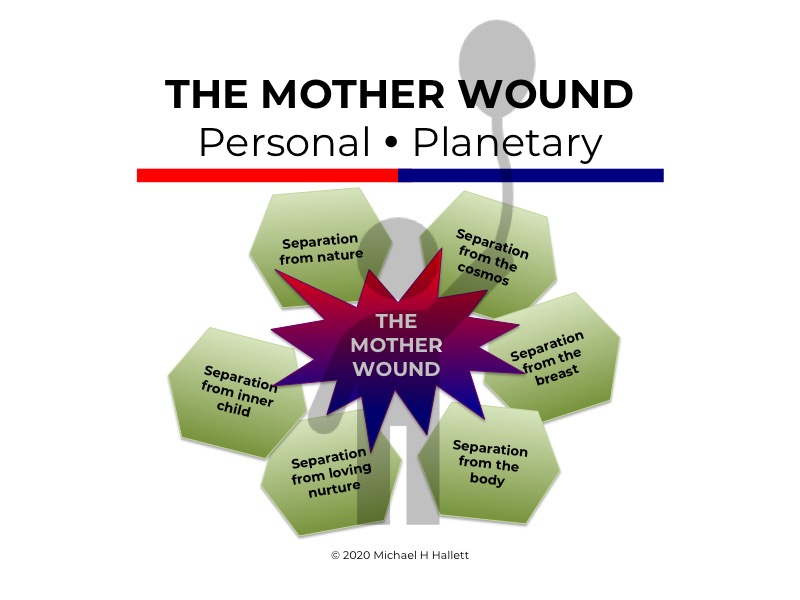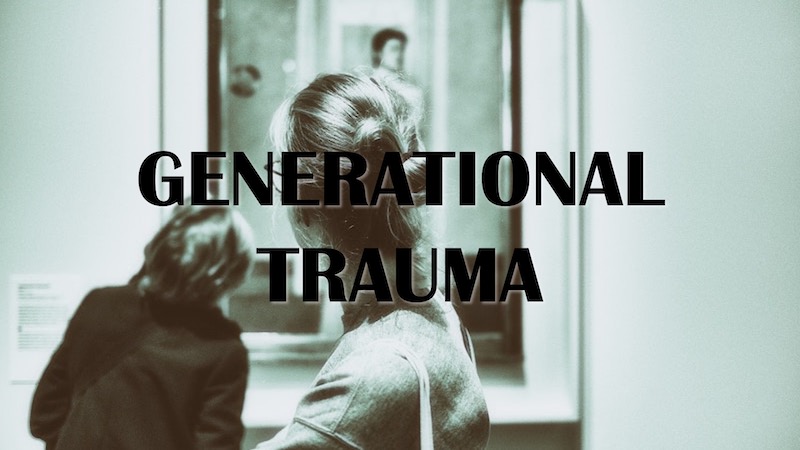Ancestral trauma #7 – The end of time
- 5 January 2023
- Posted by: Michael H Hallett
- Category: Ancestral trauma ,

The climate change that happened from around 4000 BC—documented in the Bible as The Fall—shattered Neolithic human physiology. It created homo patriarchus, patriarchal man, hell-bent on conquest and the stockpiling of surplus to offset the extreme feelings of shortage stemming from centuries of drought, desertification, and famine. Among the traumas homo patriarchus incurred in this transition is a fear of the end of time.
Ancestral traumas
This fear of the end of time is one of a rag-bag collection of traumas that I describe in What is ancestral trauma? and subsequent blogs. I call these ‘ancestral traumas’ because they originated at the time of The Fall. (Although it’s academically documented, we have no scientific name for this psychological change than what the Bible offers.) They are endemic to modern humanity as the patriarchal paradigm spread across the world through conquest.
Psychology lecturer Steve Taylor describes this shift as “the main event in human history… a sudden, massive regression—a dramatic shift from harmony to chaos, from peace to war, from life-affirmation to gloom, or from sanity to madness.”
This “madness” arose from the physiological impact of famine. In Saharasia, geographer James DeMeo writes:
“A passive indifference to the needs or pain of others manifested itself, and hunger, feeding of the self, became their all-consuming passion… The very old and young were abandoned to die. Brothers stole food from sisters, and husbands left wives and babies to fend for themselves. While the maternal-infant bond endured the longest, eventually mothers abandoned their weakened infants and children.”
The mother wound
The breaking of the maternal-infant bond fundamentally altered humanity, creating a six-fold core wound that I call the mother wound. This wound is the inception point of homo patriarchus and still overwhelmingly prevalent today.
 The psychological distortions of the mother wound eventually spawned the earliest violent patriarchies, with conquest, subjugation, and acquisition as their sole aim.
The psychological distortions of the mother wound eventually spawned the earliest violent patriarchies, with conquest, subjugation, and acquisition as their sole aim.
For thousands of years, following The Fall, every empire strained to acquire as much power as it could. Assyria, Rome, the Muslim Caliphate, Genghis Khan, from the European colonial empires to today’s global conglomerates.
They strained until they overreached themselves, destroying, killing, and subjugating so they could plunder working slaves, sex slaves, animals, goods, wealth, land. Today’s commercial empires, the watered-down descendants of the first patriarchies, limit themselves to commercial plunder—but the underlying driver hasn’t changed.
Yet there is one commodity that no conqueror can ever take from a vanquished foe.
The end of time
Time.
Look at our world. It’s obsessed with keeping time, saving time, gaining time. This is the ancestral fear of theend of time playing out on the hands of a Tissot watch. All the wealth in the world cannot stop those hands from turning, winding down, running out. The last grains of sand—appropriately enough—running through the hourglass.
This entrenched fear of the end of time is both personal and planetary, micro and macro. At the micro level, the fear of the end of time equates to the fear of death. But there are bigger, deeper fears—the end of one’s genetic line, one’s tribal group (whatever that may be), the end of time full stop. The universe grinding to a halt with a broken mainspring.
This trauma may not seem like a big deal, yet it significantly shapes the modern world, and it creates anxiety.Anxiety always has the effect of shortening time, whether it’s a feeling of having ‘time to spare’ or literally contracting our physical cells, inciting disease.
Separation from the cosmos, one of the six parts of the mother wound, is also separation from timelessness—comfort with the cycles of time, of dying and rebirth. Like any trauma, healing the fear of the end of time brings us to a greater state of wholeness.
Next steps
For further resources on generational trauma, both free and paid, please click on this image.
Photo by Tasha Jolley on Unsplash

